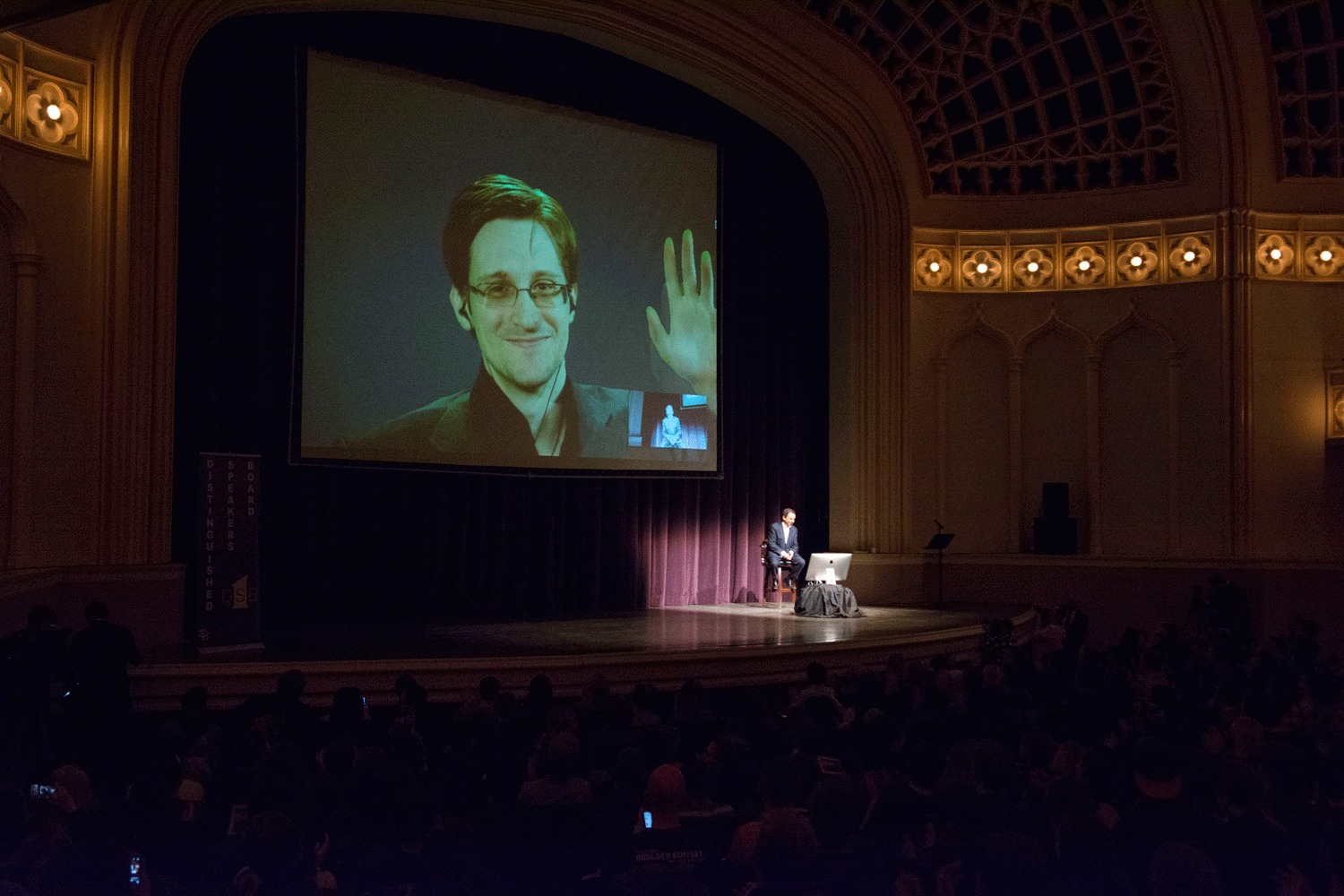
'Hanging Out' with Snowden

Edward Snowden talked about secrets a lot during a live video appearance at CU-Boulder Feb. 16, but he didn’t give up many of his own.
The former National Security Agency contractor — who in 2013 leaked a vast collection of documents about mass surveillance of U.S. citizens by the federal government — demurred Tuesday when asked which Presidential candidate he favors.
But Snowden declared he’s at peace with the possibility his actions could lead him to prison and said he has achieved his primary goal.
“I set out to let the public have the information they should always have had…,” he said of millions of classified government documents he disclosed, revealing the nature and vast extent of federal surveillance of Americans. “Once that was done, my mission was accomplished, my work was done.”
He also said: “If I end up in Guantanamo…I can live with that.”
Snowden has been living in exile in Russia since August 2013, when the Russian government gave him asylum. The U.S. Justice Department has charged him with espionage.
From Russia, Snowden addressed the CU-Boulder audience live via Google Hangouts, appearing on a giant video screen suspended over the Macky Auditorium stage. The event was sponsored by CU-Boulder’s student-run Distinguished Speakers Board and moderated by Ron Suskind, a Pulitzer Prize-winning journalist who teaches at Harvard Law School.
Variously hailed as a civil liberties hero and condemned as a traitor, Snowden’s disclosures have embarrassed the U.S. and allied governments, spurred intense discussions about privacy and other civil liberties, and prompted changes to federal conduct.
He found a friendly reception at Macky, where the capacity crowd cheered him repeatedly, sometimes at length.
The audience, dense with students, was so eager to hear directly from Snowden that some heckled Suskind for interrupting with his own long-winded questions.
“Let him speak,” one young woman shouted out to applause.
Snowden, 32, sat before a dark backdrop with nothing more visible behind him. He wore a dark shirt and sport coat, eyeglasses and ear buds.
Over the course of nearly 90 minutes, he touched on a wide range of topics, including his motives for exposing government secrets, his thoughts about the ramifications for society and for himself and technology as an “amplifier of power.”
He also addressed his close collaboration with journalists, the long history of rebellion in America and the proliferation of government secrets, which can sometimes be necessary, he allowed, but only in a “transient” way.
Besides allowing himself a few broad, shy smiles in response to heavy applause, Snowden maintained a serious attitude, even when the moderator tried to set him up for a joke.
Suskind at one point asked Snowden about HBO comedian John Oliver’s suggestion, in a previous interview with Snowden, that the main reason most people care about government monitoring of private communications is the fear their “naked selfies” might be exposed. But Snowden didn’t take the bait, and simply addressed the matter of why people should care.
When Suskind tried again, saying that 330 million Americans represented “a lot of naked selfies,” Snowden again opted for a sober response.
“People go… ‘I don’t have anything to hide…’” he said. “That’s like saying you don’t care about freedom of speech because you have nothing to say.”
In the event’s closing moments, Suskind prompted a final burst of applause. Saying the event had “struck a blow for the First Amendment,” he encouraged the crowd to cheer so loud that “Ed could hear it in Moscow.”
The cheer went up. Then the screen went dark and Edward Snowden was gone.
Photo by Patrick Campbell/University of Colorado

